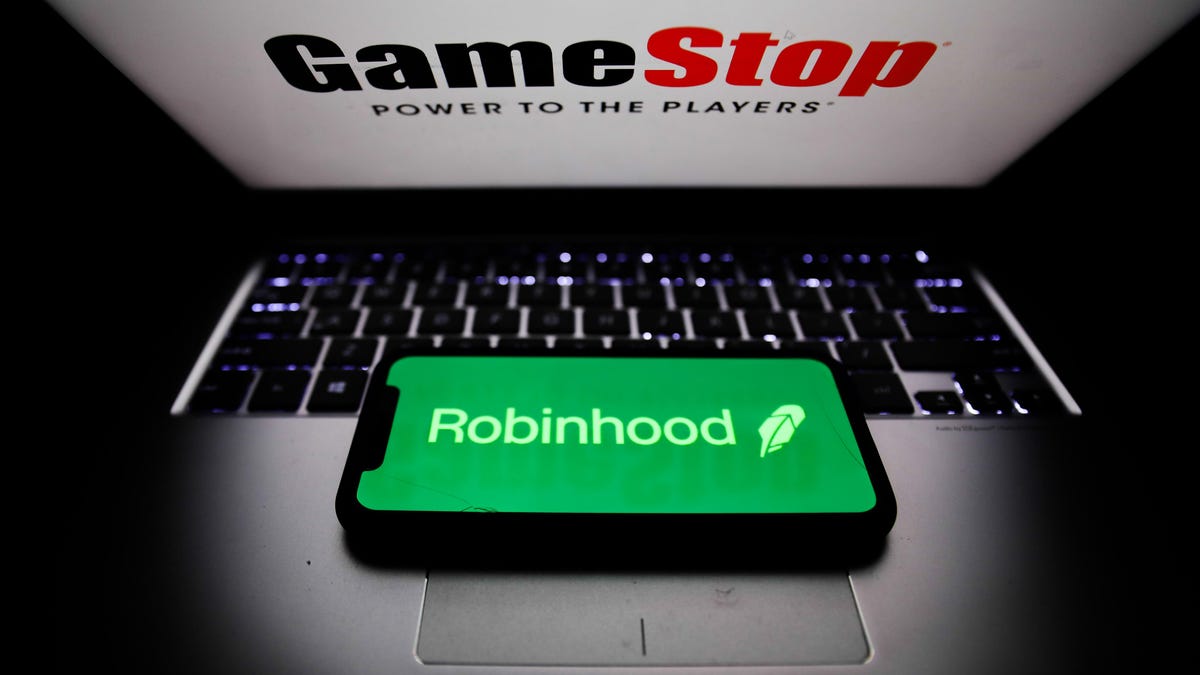Robinhood's role in GameStop stock spike scrutinized by Congress
The US House Financial Services Committee held a hearing about volatility in GameStop and other meme stocks and to get answers about the machinations of the trading world.

A congressional hearing will try to explain everything about the GameStop stock roller coaster.
GameStop's stock crashed shortly after traders in a Reddit community pushed it to all-time highs. The market volatility caught the attention of Congress, which held a hearing on Thursday to figure out what happened.
California Rep. Maxine Waters said the House Committee on Financial Services hearing was "an opportunity for this committee to get the facts about the role each of the entities of the witnesses represent played in the events we are examining today." The hearing's title, Game Stopped? Who Wins and Loses When Short Sellers, Social Media, and Retail Investors Collide, emphasized that point.
The chief executives of Reddit, Robinhood, Citadel and Melvin Capital, along with the Reddit poster who spearheaded the GameStop buying frenzy, were all in attendance at the hearing through video conferencing. But many times, committee members complained the witnesses, who were under oath, didn't provide direct enough answers. By the end of the more than five-hour hearing, committee members found themselves short on specifics. (Keith Gill, a trader known as "RoaringKitty" on YouTube, confirmed, however, that he is not a cat.)
The entire market process, from trade settlement to Robinhood's fee-free trading, is maddeningly opaque. Committee members regularly repeated questions about what market forces led to trading issues at the height of the drama and how those issues were communicated with users at various points.
Committee members frequently asked questions of Vlad Tenev, the CEO of trading app Robinhood.
Another big theme was whether short selling and options are appropriate strategies for individual investors. Committee members tried to learn whether Robinhood's push to "democratize finance" for the public is more harmful than good. The members repeatedly raised the story of Alex Kearns, a 20-year-old man who committed suicide after the app appeared to tell him he'd racked up roughly $730,000 in trading losses on the app. His family is suing Robinhood.
The line of questioning suggests at least some lawmakers will scrutinize the financial tech industry and possibly move to introduce legislation that would bring more regulation. Some Republican committee members said the overall market functioned well, though, and dismissed the need for more regulation.
"We don't have the facts -- we need facts, not just the salacious bits or nasty comments on Reddit," said North Carolina Rep. Patrick McHenry. "Instead of shutting the American public out through new regulations, new forms of taxation or so called protections, let's use this opportunity instead to side with them."
Robinhood in the spotlight
The hearing frequently led to questions about Robinhood and its business model.
Robinhood in particular drew much of the committee's attention. Its app was at the center of what happened, making it easier for new investors to open trading accounts by offering no-commission trades and more forgiving loan terms. But it also drew users' ire when it halted GameStop stock purchasing on Jan. 28, accusing the company of market manipulation just as prices began to fall.
Robinhood CEO Vlad Tenev denied the accusations, saying his company made those moves in response to market requirements the company have more money to help cover its user's trades. Tenev said that since then, Robinhood secured more capital to ensure it wouldn't happen again.
When asked whether Robinhood hadn't been appropriately prepared for the GameStop drama in the first place, Tenev said there was a one in 3.5 million chance of a GameStop situation happening, calling it a "Black Swan event."
Still, committee members continued to hit him with questions, asking for details on how Robinhood communicates with users and how it educates them about the market. Some lost patience with him and his seemingly evasive answers.
"You have admitted to making mistakes," Rep. Madeline Dean of Pennsylvania said to Tenev at one point. "Specifically, what mistakes did you make?"
"I admit to always improving," Tenev responded.
Waters, who is chairwoman of the committee, said more hearings about the GameStop stock surge are being planned.



